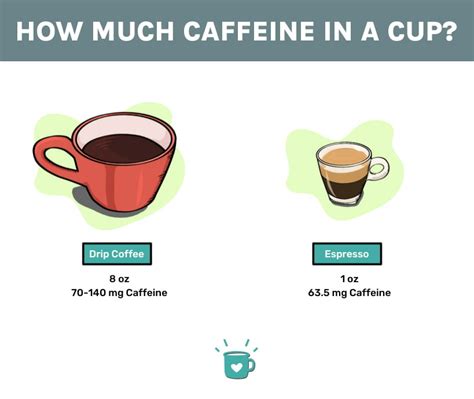As the day begins, many of us rely on a warm cup of coffee to get us going. Among the various types of coffee drinks, cappuccinos have gained immense popularity due to their rich flavor and perfect balance of textures. But have you ever wondered how much caffeine is in your cappuccino? In this article, we'll delve into the world of cappuccinos and explore the caffeine content in your cup.
The Cappuccino: A Brief Overview
A traditional cappuccino is a coffee drink that consists of three layers: espresso, steamed milk, and frothed milk. The espresso serves as the base, providing a strong and rich flavor. Steamed milk is added on top, followed by a layer of frothed milk, which adds a velvety texture to the drink.

Caffeine Content in Cappuccinos
The amount of caffeine in a cappuccino can vary greatly depending on several factors, including the type of coffee beans used, the roast level, and the brewing method. Generally, a shot of espresso contains between 60-120 milligrams of caffeine. Since a traditional cappuccino consists of two shots of espresso, the total caffeine content would be around 120-240 milligrams.
However, it's essential to note that some coffee shops may use more or less espresso in their cappuccinos, which can affect the overall caffeine content. Additionally, some cappuccinos may include a shot of coffee or a different type of milk, which can also impact the caffeine levels.
Factors Affecting Caffeine Content in Cappuccinos
Several factors can influence the amount of caffeine in your cappuccino:
- Type of coffee beans: Arabica beans tend to have a lower caffeine content compared to Robusta beans.
- Roast level: Lighter roasts tend to have more caffeine than darker roasts.
- Brewing method: The brewing method used to make the espresso can affect the caffeine extraction.
- Milk ratio: The amount of milk used in the cappuccino can dilute the caffeine content.

How Much Caffeine is Safe for Consumption?
The American Academy of Sleep Medicine recommends that adults consume no more than 400 milligrams of caffeine per day, which is approximately the amount found in three to four cups of brewed coffee. However, individual caffeine sensitivity can vary greatly, and some people may experience adverse effects even at low doses.
Tips for Reducing Caffeine Intake in Cappuccinos
If you're concerned about your caffeine intake, here are some tips to reduce the amount of caffeine in your cappuccino:
- Ask for a single shot of espresso: Instead of the traditional two shots, ask your barista for a single shot of espresso.
- Choose a lighter roast: Lighter roasts tend to have less caffeine than darker roasts.
- Opt for a milk-based cappuccino: Milk can help dilute the caffeine content of the espresso.
- Try a decaf cappuccino: If you're highly sensitive to caffeine, consider trying a decaf cappuccino.

Gallery of Cappuccino-Related Images






Frequently Asked Questions
How much caffeine is in a typical cappuccino?
+A typical cappuccino contains around 120-240 milligrams of caffeine, depending on the type of coffee beans used and the brewing method.
Can I reduce the amount of caffeine in my cappuccino?
+Yes, you can reduce the amount of caffeine in your cappuccino by asking for a single shot of espresso, choosing a lighter roast, or opting for a milk-based cappuccino.
Is it safe to consume cappuccinos with high caffeine content?
+While moderate caffeine consumption is generally safe, high levels of caffeine can cause adverse effects such as jitteriness, anxiety, and insomnia. It's essential to be mindful of your caffeine intake and adjust accordingly.
As you enjoy your next cappuccino, remember to be aware of the caffeine content and adjust your consumption accordingly. With the tips and information provided in this article, you'll be well on your way to enjoying a delicious and balanced cup of coffee. So go ahead, savor the flavors, and indulge in the perfect blend of coffee and milk – your taste buds will thank you!
